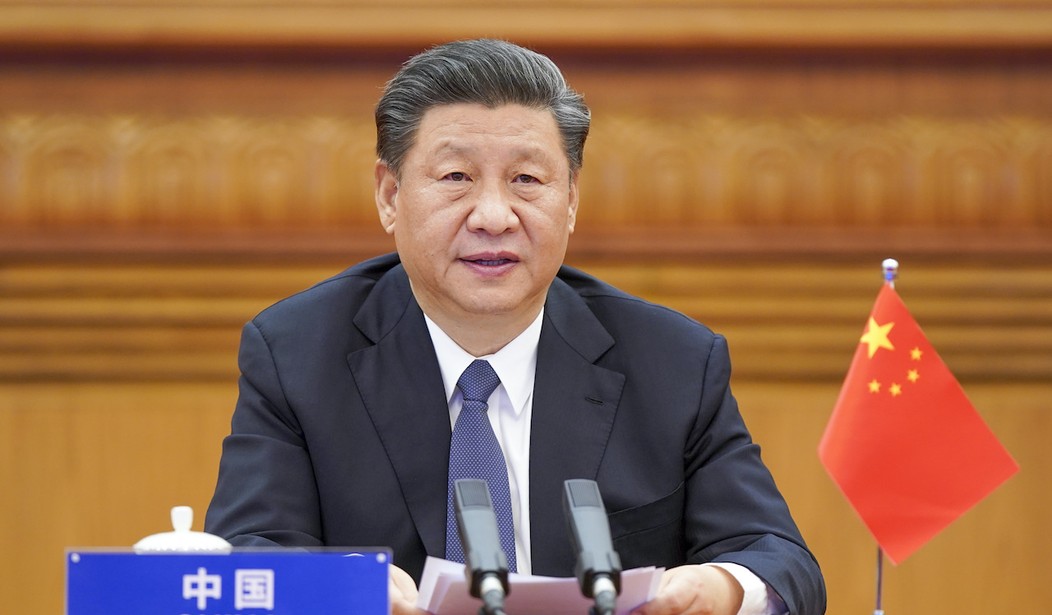On Feb. 4, on the sidelines of the Olympics in Beijing, Russian President Vladimir Putin and Chinese President Xi Jinping pledged their undying loyalty and an everlasting devotion to one another. It was the biggest society wedding since Charles and Di tied the knot these many years past, and both the bride and groom appeared radiant in the cold winter sunshine.
Russia and China were to be friends with “no limits,” according to the communiqué released announcing the marriage. Less than three weeks later, Russia invaded its neighbor Ukraine, and China has now found itself on the wrong side of world opinion and is stuck supporting an increasingly brutal war.
China has blood on its hands. And they don’t like it one bit.
Russia’s subsequent invasion of its neighbor is forcing Beijing into adjusting its foreign policy in a way that risks damaging relations with the U.S.-led West and undoing years of efforts to paint itself as a responsible world leader.
In Beijing, the ripple effects of a move that may cost China dearly are now sinking in, say the officials and advisers. Some officials say they are fearful of the consequences of getting so close to Russia at the expense of other relationships—especially when Russian aggression against Ukraine is isolating Moscow in much of the world.
Xi has spent the last decade trying to maintain a low profile for China, staying above the fray in international conflicts and only asserting its power recently in Hong Kong and the South China Sea. They’ve tried to play the honest broker in the Middle East and Africa while currying favor with third-world nations by funding development projects.
But Xi’s well-laid plans are now in ruins thanks to Russia making an aggressive war on Ukraine.
This year, during which Mr. Xi is expected to break with precedent and seek a third term in power, he is facing an economic downturn at home that is largely a result of his own policies—and a geopolitical shift in which China has placed itself on one side of a gulf that has almost all of the rest of the world on the other side.
What Beijing will do next depends on how hard the U.S. will push sanctions on Russia, say the foreign-policy advisers. Mr. Xi also likely will continue to maintain his partnership with Mr. Putin, as Beijing sees little chance of improvement in its U.S. ties and needs to keep Russia around as its most important strategic collaborator even if it isn’t an outright ally. But that will require China to continue to straddle an increasingly difficult diplomatic position.
China has blamed NATO for the war in Ukraine — a position increasingly at odds with reality as Russia’s brutal tactics are making it apparent that Putin is the aggressor.
China recognizes this and is scrambling to pull back from its full-throated support for Putin and Russia.
As soon as Mr. Putin left Beijing after the Feb. 4 declaration, China’s top leadership disappeared from public view, huddling to form a response to the developing Ukraine crisis. More than a week later, they emerged to embark on a series of statements that showed a desire to dial back or clarify Beijing’s embrace of the Kremlin.
Since the Russian troops marched into Ukraine on Feb. 24, China has been walking what many foreign-policy experts call a diplomatic tightrope. It is locked into having to help Russia and has little interest in seeing Moscow collapse economically, while it is trying to stick to its foreign-policy principles around sovereignty and attempting to prevent its relations with the U.S. and Europe from completely collapsing.
China is trying to walk a tightrope with alligators on one side and the fires of hell on the other. Xi made a critical error in judgment — the kind of thing that used to get Communist leaders disappeared or at least deposed. The situation is not yet a test of survival for Xi, but he’s bound to be spending the next few weeks trying to extricate himself from a very sticky situation.










Join the conversation as a VIP Member